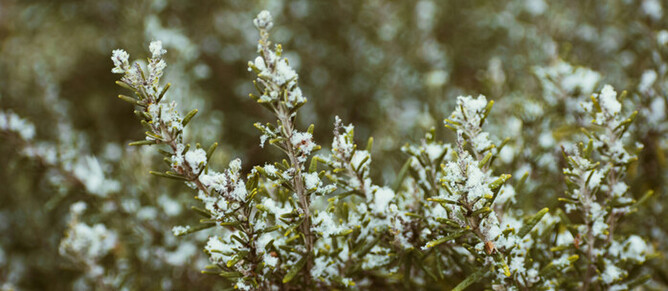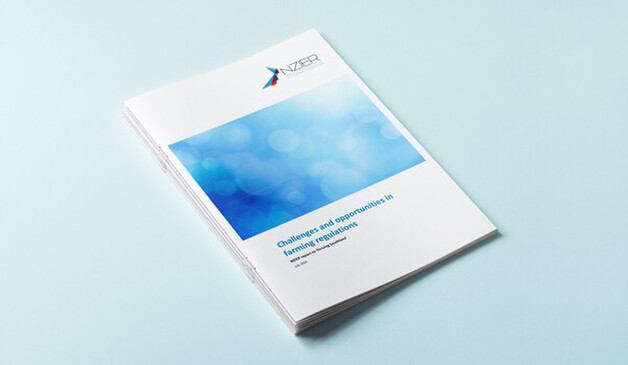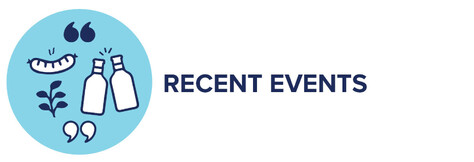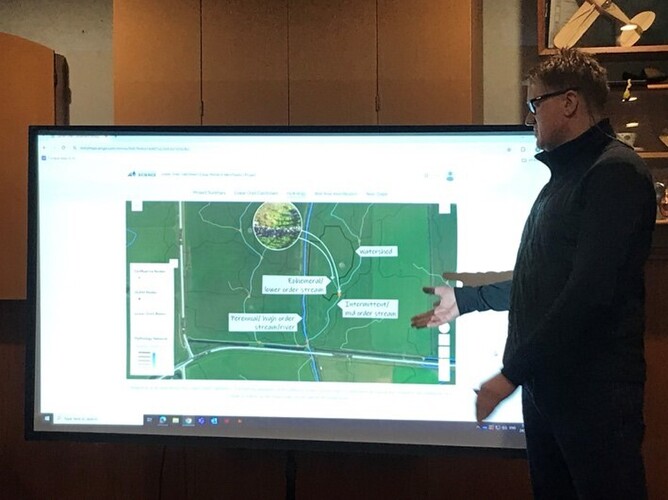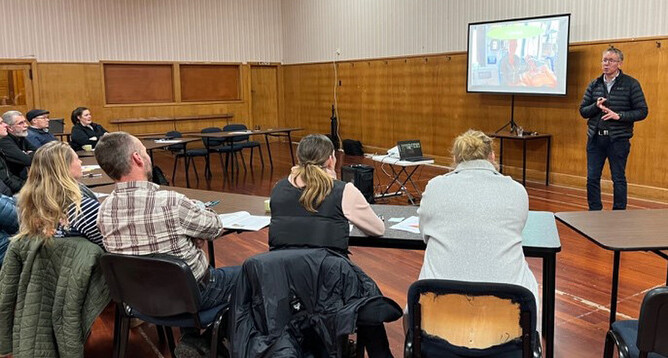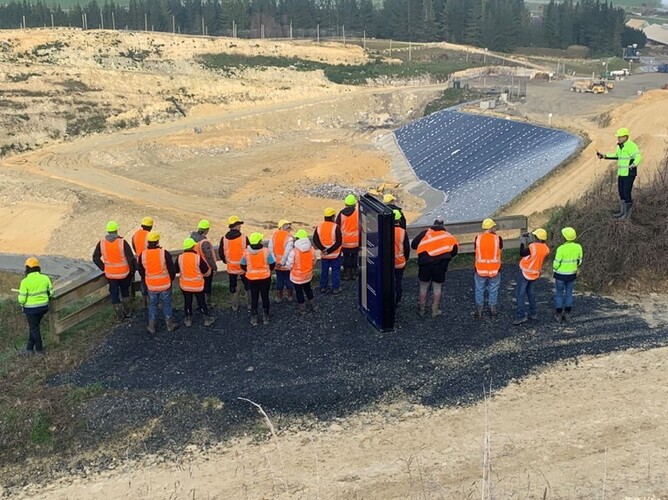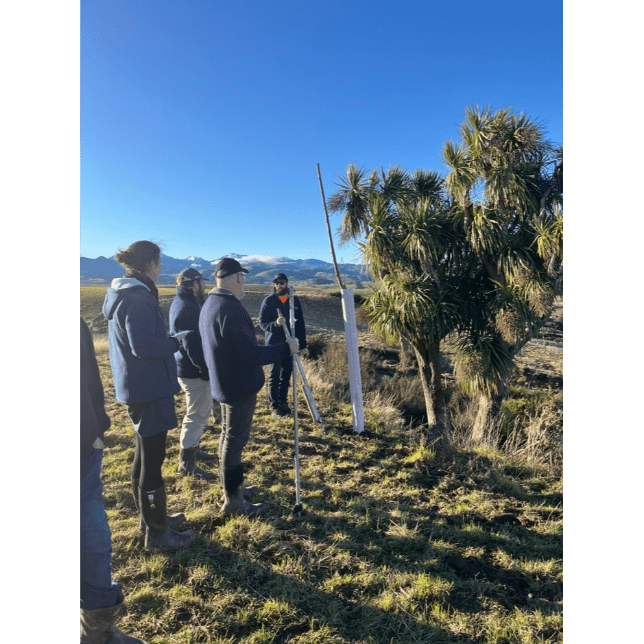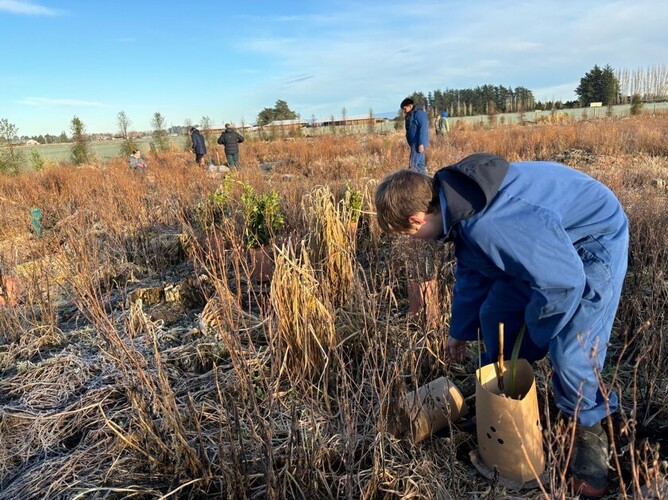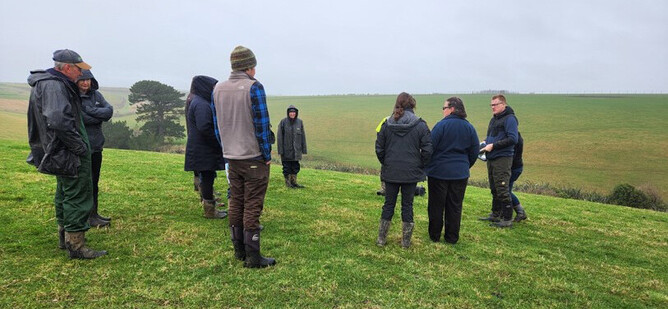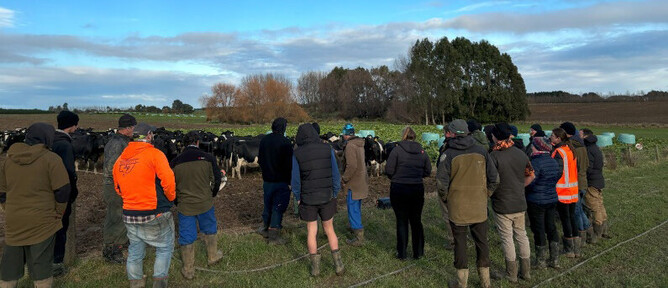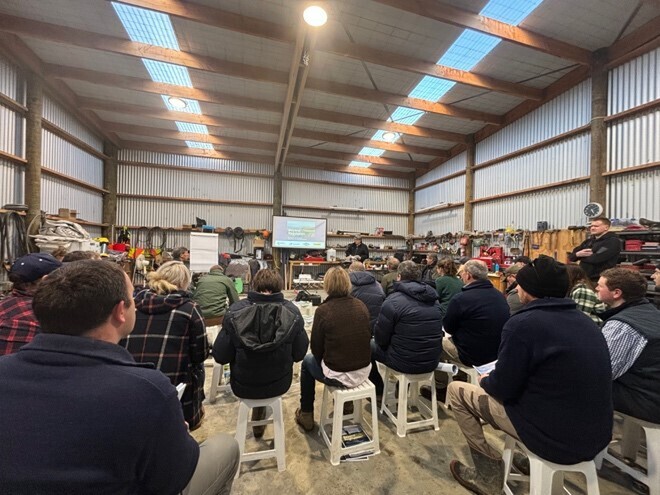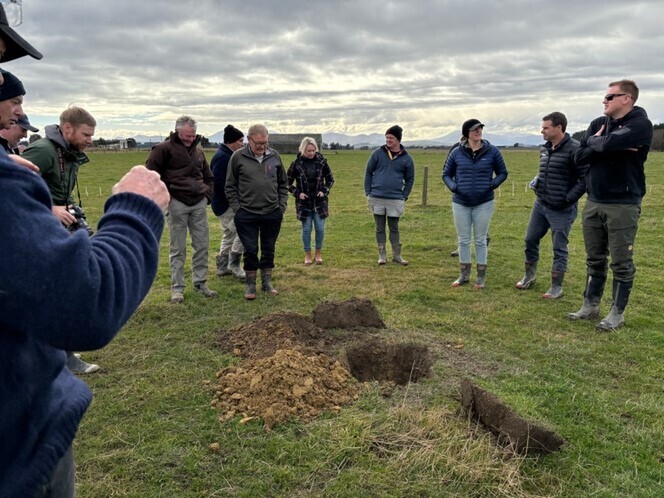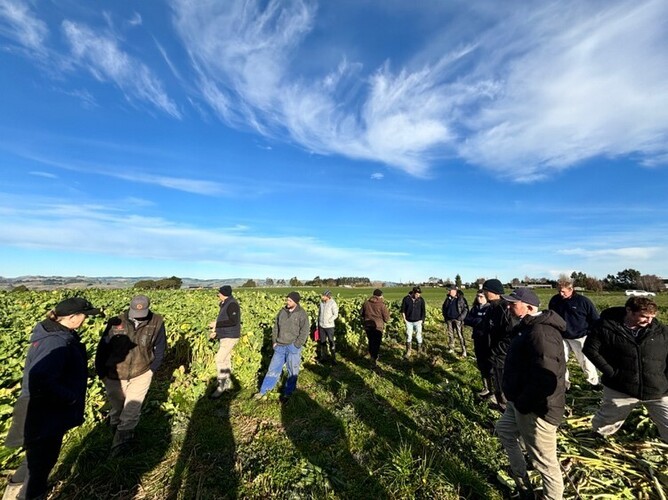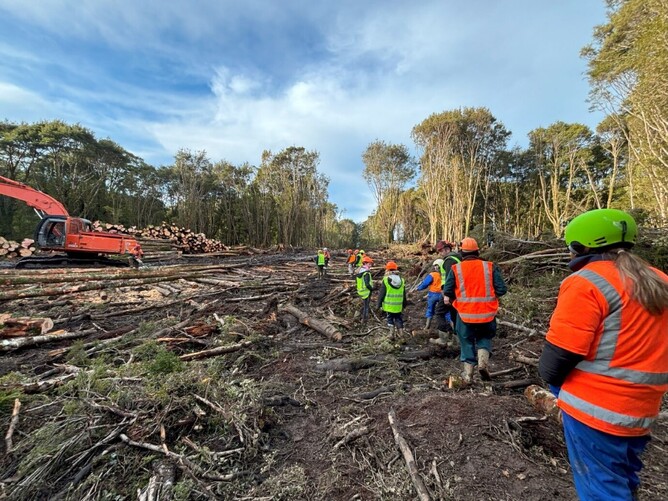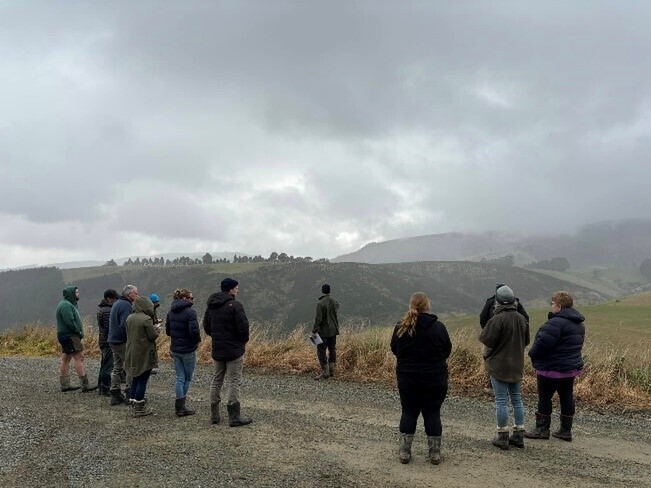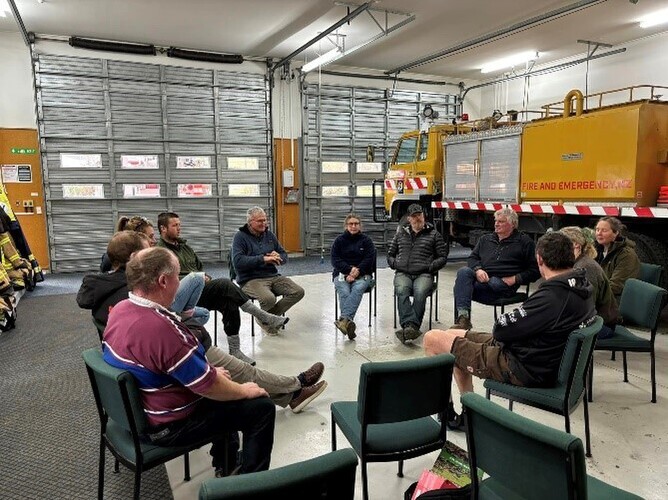Wow - July was a huge month on the event front with Catchment Group members across the region coming up with great ideas. There’s been plant propagation, considerations of animal pest issues, wellbeing events, winter grazing tours and heaps of other fantastic Catchment Group activity, which you can read more about below.
One of the highlights was the culmination of the Beyond Regulation project, with a tagline of ‘Finding the right pathway forward for your business’. The project has included case studies of dairy, sheep and beef and grain farm operations with a focus on having the right knowledge to help you get the best results to maintain financially viability and sustainability.
We have developed models to allow people to focus on their goals, and work out where they can find multiple mitigation opportunities, taking into account variation in landscapes, farm system and financials, while recognising that every farm is different. The models allow people to consider potential changes at catchment scale, sub-catchment scale and farm scale.
You can read more in the recent Farmers Weekly article or on our website.
Resource of the Month
Challenges and opportunities in farming regulations - NZIER report to Thriving Southland
Something new this month - this report provides an insight into farmers’ view on regulations, and some observations to southern farmers and regulators on how to maximise opportunities. The authors talked with around 20 Southland farmers across three catchment areas over three workshops.
They discussed examples of regulations that worked and didn’t work and talked about the process of regulation development and implementation. They also discussed how things could be done differently and how farmers could be more engaged with the process of regulation development and implementation on their farms.
Read the full report here.
Get up $200 for sharing your insights into land-management decisions
Lincoln and Otago Universities are doing a study to understand how southern farmers make decisions about their land. It's voluntary and the results will be anonymous.
The survey takes up to 30-minutes and they'll send you a $50 Woolworths voucher by email after it's completed, plus you go in the draw to win more. The second part of the survey (also 30-minutes) will be done 12-18 months later, and you'll get a $150-Woolworths voucher as a thank you for your time.
It's your chance to make a little extra cash, and do your bit to contribute to the economic understanding of voluntary investments into land-management practices.
You can enrol in the survey here.
Great maps for Lower Oreti
Lower Ōreti spent an evening learning about local waterways and where the water collects in their area. This is all part of their work to learn about their special part of Southland and help them make great decisions for their farming businesses - environmentally and financially. Land & Water Science created two maps for the Group, showing the local hydrological network and relatives wetness gradient. The Group are keen to see the Wetland Resource Directory that the Mid Oreti Catchment Group are making, as part of the Marshalling The Best project. We are looking forward to seeing what their next steps are.
Between the Domes Winter wellbeing event
Knowing your purpose, connecting and taking care of your wellbeing. These are all steps that help be resilient and allow you to thrive in the face of adversity, according to Kellogg scholar Jack Cocks. Jack joined the group at the end of June to speak about his experiences, following a near death experience, which started his own journey of resilience and sparked his interest in this area. He went on to undertake a Kellogg project looking at ‘How Resilient Farmers Thrive in the Face of Adversity’.
Following a delicious supper, Hamish McMurdo shared the inspiring story of Recycle South, from supporting employees with disabilities to recycling balewrap in Southland. Between the Domes have been big supporters of the recycling initiative and it was great to have Hamish join this fun social evening.
Waihopai Catchment Group visit to AB Lime - Southern Regional Landfill, Fertiliser Blending Plant and Dairy Farm
After hearing Ainsley Adams speak about the AB Lime business at their woolshed mini speaker series in May, Waihopai Catchment Group thought it would be great to visit AB Lime and see how all the different business elements work together. This is part of their work to look at how to farm environmentally and profitably into the future.
It was a gorgeous afternoon for the visit, and the AB Lime Team did a wonderful job of looking after Group. They went over the whole site, visited the Southern Regional Landfill, quarry, fertiliser blending plant and the dairy farm - which included looking at AB Lime’s sediment bund, native plantings and man-made seepage wetland.
Many thanks to the AB Lime Team for hosting a fantastic visit, especially Steve, Ainsley, Grant and Liz, and for the amazing BBQ. Join the next event to hear from Jim Risk from Ballance Agri-Nutrients who will be speaking to the group on nitrogen use and efficiency.
Orauea hill country Erosion Project Final Field Day
The Orauea River Catchment Group were thrilled to receive funding from the Hill Country Erosion Fund last year and since then five farms have undertaken planting as part of this project. At the end of June, the Group held a field day marking the end of the project, visiting two of the planting sites. The first site was a larger wet steep area where slumping has occurred in the past and has been planted in poplars, which, once established, will have sheep grazing underneath. The second site was a steep-sided gully that has been fenced and planted in natives.
Following the farm visits we headed to the golf club for some food and refreshments and a bit of a planning session around what the Group would like to do next. The Group is made up of a small core of farmers and would love to see some new faces join, so please contact Jacqui Chamberlain or your catchment co-ordinator if you would like to get involved.
Thank you to Keith and Jodie from Environment Southland who have shared their expertise. Resources will be published to share the findings, and for more information contact Keith Finlayson at Environment Southland.
Mid Oreti Mini Forest Movement Success!
June and July have been amazing months for the Mid Oreti Mini Forest Project. Winton School, Central Southland College, Central Southland Toy Library and a local landowner got 1124 native plants in the ground. You can read and see more at the Mid Oreti Catchment Group Facebook page.
This year, the plants were purchased from Te Tapu o Tane using a Westpac Water Care grant, whilst the Mid Oreti Crew wait for their native plants to grow big enough. Many thanks to Westpac and NZ Landcare Trust for this amazing funding.
The Group’s monthly nursery sessions are bringing on more plants from locally grown seed and sharing lots of skills and info with anyone keen to come along and learn. They collect seed annually from local sites and accept donations of local native plants and seed. The young plants are growing well, with 600 propagated in 2022, 1500 in 2023, and over 1000 have already been potted up this year - so well on the way to doubling this figure.
This month was a great nursery session, with pittosporums being potted from cells trays to the big pots (recently donated – many thanks), and pittosporum seedlings being put into root trainers. These root trainers were re-used from the plants that have been planted out, and the group are always very grateful to receive donations of root trainer, plant pots and plant protectors. They will happily reuse and rehome.
Established in 2022 the Mid Oreti Mini Forest Movement project has a simple goal - to plant more native plants in Central Southland by providing natives to landowners, schools, and community groups, and upskilling their community to grow their own.
Have a read of their webpage for more information on the project here.
Source to Stream Project - Follow up Field Day at Titiroa
The Titiroa Catchment Group held the second field day as a part of their Source to Stream project, at the start of July. The field day was hosted by Phillip and Leigh Golden and focussed on the Source--> Pathway--> Receiving Environment concept with Land & Water Science.
Clint’s presentation emphasised the importance of utilising natural flax and gullies to manage water flow effectively. Key takeaways included focusing on the end game, ensuring you have easy access to sediment traps and wetlands for regular maintenance, and follow the natural landforms when fencing to help capture water flow before it heads into the gullies, rather than driving posts straight up the middle of a gully. They also commented that natural Regeneration works and nature’s resilience is inspiring!
Annual Lower Aparima Winter Grazing Tour
Lower Aparima Catchment Group had a great Friday afternoon out for their annual winter grazing tour. This year they mixed it up, heading out of the Catchment, visiting Recycle South's bale wrap recycling plant, the Southern Dairy Hub and a grazing finishing farm. A fantastic day 'looking over the fence' learning and catching up, even testing dry matter of bulb crops thanks to DairyNZ. Big thanks to the MPI On Farm Team for sorting the BBQ for us, and BNZ for the refreshments. We are excited to see what the 2025 tour brings.
Beyond Regulation - Finding the right pathway forward for your business
Fantastic to see a great turnout for the Beyond Regulation Arable Case Study Field Day. Thanks to Blair and Jody Drysdale for opening up their farm and also being great hosts!
Lots of great takeaways from the day looking at mitigations, landscape, farm system and financials. “All the little things you do add up to make a big difference”.
Thanks to our awesome speakers Land & Water Science, Scandrett Rural Ltd, Roslin Consultancy, Yara NZ and Rabobank for sponsoring a delicious lunch. For more info and the full case study details click here.
South Coast Catchment Group discusses next steps
The South Coast Catchment Group met in mid-July to discuss what areas we could explore together. After a lot of discussion, we decided to focus on understanding the impact of animal pests in our community. We would like to gauge the extent of the animal pest problem, where it's most severe, and how it affects our community. To do this effectively, we need South Coast and Waikawa community’s input to understand how bad is the problem, where is it mostly located and would the community support a project to tackle this issue?
Your feedback will be important to help us understand the situation and determining the best course of action. Keep an eye on your emails for a survey where you can share your experiences and thoughts. Your participation will help us shape a project that addresses the specific needs and concerns of our community.
Gore Catchment Group Wintering Field Day
Recently, we held a Wintering field day at the Giles property, generously sponsored by PGG Wrightson Seeds, who treated us to a fantastic BBQ. The day was brimming with innovative wintering strategies that sparked lively discussions.
One standout was the use of protective covers on silage stacks, secured with sandbags—a simple yet effective method to keep feed safe. We also evaluated the silage pad system for wintering and discussed the benefits and challenges of off-paddock wintering structures.
We explored the Giles’ grass baleage wintering, focussing on maintaining grass cover and reducing soil damage after grazing. This technique can significantly reduce the time needed to get back onto paddocks, with minimal cultivation.
A highlight of the day was hearing from PGG Wrightson Seeds about their work on the Giles farm. They’ve sown, measured, and recorded 40 different cultivars, optimising growth potential, dry matter (DM), leaf-to-stem ratio, and palatability as well as many other measures. The trials with swedes and kale are particularly promising, offering new insights into maximizing crop performance.
In addition to our field day, we’ve been busy applying for funding to support on-the-ground projects. We’re thrilled to announce that we’ve successfully secured funding from Westpac for the development of a wetland. This project aims to enhance our local ecosystem, and we can’t wait to get started. Stay tuned for more details as we progress.
Pourakino Catchment Group field trip checks out indigenous forest management
Catchments are full of diverse elements—people, land uses, and sizes. The Pourakino Catchment Conservation Trust had the opportunity to explore one of their catchment’s more unique land uses and learn about the work of local foresters, Lindsay & Dixon. We ventured into the Longwoods to checkout their sustainable forestry practices first hand.
Lindsay & Dixon is the only company in New Zealand to gain Forest Stewardship Council (FSC) certification for indigenous forest management and harvesting. This certification ensures they meet the highest environmental, economic, and social standards.
Some information about their sustainable practices include:
Sustainable Area: The Waitutu/L&D forest estate under sustainable management is 12,188 hectares, with a maximum allowable harvest area of 87 hectares per annum.
Sustainable Volume: The maximum permitted harvest is 24,000 trees per annum, less than one percent per annum of both area and volume.
Ecological Management: This addresses the protection and preservation of waterways, soil condition, flora, and fauna, and the regeneration of the forest post-harvesting.
This field trip was a fantastic experience, showcasing the dedication and care that goes into managing our natural resources. We were amazed at how the beech forests regenerate naturally, with thousands of seedlings ready to grow when the canopy opens.
Growing Catchment Group Connections
Greater Dipton had a great day hosting the Central Otago Future Farm Systems Greenhouse Gas Group this month. The Group, based around Middlemarch, caught up with the team about the Carbon Neutral Dipton project to discuss energy resilience, on farm ideas, collective thinking, investing at a catchment scale and tree protectors, as well as visiting two farms, and having a yummy morning tea and lunch!
It was a really inspiring day with both groups having amazing projects in this space. The Groups are keen to keep in touch and see how they can work together in the future.
Mini Forest Movement Native Plant Nursery drop-in session
First Tuesday of every month, 4pm to 6pm
AB Lime Nursery, 10 Bend Road, Winton
All welcome to our monthly native plant growing working-bee evenings at the AB Lime Nursery - first Tuesday of every month. Your help will go towards growing plants for the Mid Oreti Mini Forest Movement Project, which provides native plants to the local community and landowners for their planting projects. Training is provided and all ages welcome! Stay for as little or as long as you like.
Waikawa Catchment Group pest animal issues get-together
6 August, from 7pm
Waikawa Hall
Pest animals are a significant issue for the Waikawa and wider Catlins area. The Makarewa Headwaters Catchment Group have been doing some excellent work in this space, and the Waikawa Catchment Group have invited a few of their members down to come and speak, share their learnings, and hopefully create our own plan of action! All welcome.
There are likely to be more events in the pipeline so make sure you check out the events section on the Thriving Southland website and the Facebook page for details.
Have a great August,
Ngā mihi
Richard Kyte (Thriving Southland Project Lead) and the Thriving Southland Team
